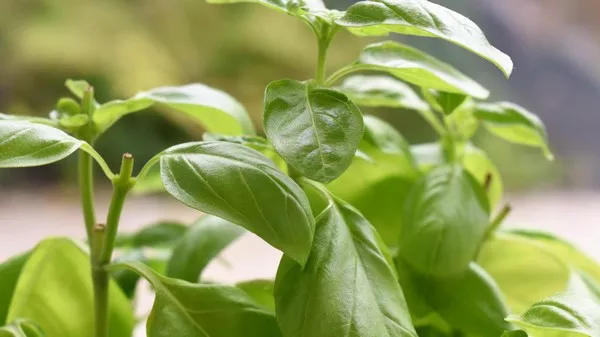In the quest for effective and environmentally friendly pest control methods, gardeners often turn to natural alternatives to chemical pesticides. Lemon juice, with its acidic properties and versatility, has garnered attention as a potential insecticide for plants. Rich in citric acid and other compounds, lemon juice is believed to repel or eliminate certain pests while providing added benefits to plants. In this article, we explore the feasibility of using lemon juice as an insecticide, its potential benefits and limitations, and best practices for application.
Understanding the Role of Lemon Juice in Pest Control
Lemon juice is renowned for its acidic nature, primarily due to its high citric acid content. This acidity can be effective in repelling or deterring certain pests that are sensitive to acidic environments. Additionally, lemon juice contains natural compounds such as limonene, which has insecticidal properties and can disrupt insect behavior. When applied to plants, lemon juice may act as a repellent, masking the plant’s scent or taste and making it less appealing to pests.
Potential Benefits of Using Lemon Juice as an Insecticide
One of the primary benefits of using lemon juice as an insecticide is its natural and non-toxic nature. Unlike synthetic chemical pesticides, lemon juice is derived from a renewable and readily available source, making it a sustainable option for pest control. Lemon juice is also safe for humans, pets, and beneficial insects when used appropriately, reducing the risk of harm to the environment and non-target organisms. Additionally, lemon juice may provide added nutritional benefits to plants, as it contains vitamins and minerals that can support growth and resilience.
Effectiveness Against Common Garden Pests
While lemon juice may have some insect-repelling properties, its effectiveness against common garden pests can vary depending on the species and life stage of the pest. Some pests, such as aphids, spider mites, and whiteflies, are known to be sensitive to citrus scents and may be deterred by the application of lemon juice. However, other pests, such as caterpillars or beetles, may not be as affected by lemon juice and may require alternative control methods. It’s important to assess the specific pest problem in your garden and determine if lemon juice is a suitable solution.
See Also: Is mint a natural insecticide?
Application Methods and Considerations
When using lemon juice as an insecticide for plants, there are several application methods to consider. One common approach is to dilute lemon juice with water to create a spray solution. Mix one part lemon juice with three parts water and add a small amount of dish soap to help the solution adhere to plant surfaces. Transfer the mixture to a spray bottle and apply it to affected plants, focusing on areas where pests are present. Reapply the solution as needed, especially after rainfall or irrigation.
Precautions and Considerations
While lemon juice can be a natural and effective insecticide, it’s essential to exercise caution and consider potential drawbacks. Lemon juice may cause leaf burn or damage to sensitive plants, particularly if applied in high concentrations or during periods of intense sunlight. Before applying lemon juice to your plants, perform a spot test on a small area and monitor for any adverse reactions. Additionally, avoid spraying lemon juice on plants that are already stressed or weakened, as it may exacerbate their condition.
Enhancing Efficacy with Companion Ingredients
To enhance the efficacy of lemon juice as an insecticide, consider incorporating companion ingredients that complement its pest-repelling properties. Garlic, for example, contains sulfur compounds that can further deter pests and inhibit fungal growth. Mix crushed garlic cloves with lemon juice and water to create a potent insecticidal spray. Similarly, hot pepper or chili powder can add a deterrent effect to the spray, making it less palatable to pests. Experiment with different combinations to find the most effective solution for your garden.
Considerations for Organic Gardening Practices
For gardeners practicing organic gardening methods, using lemon juice as an insecticide aligns with principles of sustainability and environmental stewardship. Organic gardening emphasizes the use of natural, non-toxic solutions for pest control while minimizing harm to beneficial insects and soil health. Lemon juice fits into this ethos by providing a safe and eco-friendly alternative to chemical pesticides. When used in conjunction with other organic pest control methods, such as companion planting and biological controls, lemon juice can contribute to a healthy and balanced garden ecosystem.
Limitations and Alternatives
While lemon juice can be a useful tool in pest management, it’s important to recognize its limitations and explore alternative methods when necessary. Lemon juice may not be effective against all pests, particularly those with specialized feeding habits or resistance to citrus scents. In cases where lemon juice alone is not sufficient, consider integrating other pest control strategies such as physical barriers, biological controls, or targeted organic pesticides. By adopting a holistic approach to pest management, you can address pest issues effectively while promoting the overall health of your garden.
Conclusion
In conclusion, lemon juice can serve as a natural and environmentally friendly option for controlling pests in the garden. Its acidic properties and citrus scent make it unappealing to certain pests, helping to deter infestations and protect plant health. When used responsibly and in conjunction with other pest control methods, lemon juice can be a valuable tool for organic gardeners seeking sustainable solutions. Experiment with different application methods and companion ingredients to maximize its effectiveness while minimizing potential risks. By harnessing the power of lemon juice as an insecticide, you can cultivate a thriving garden ecosystem that flourishes in harmony with nature.


